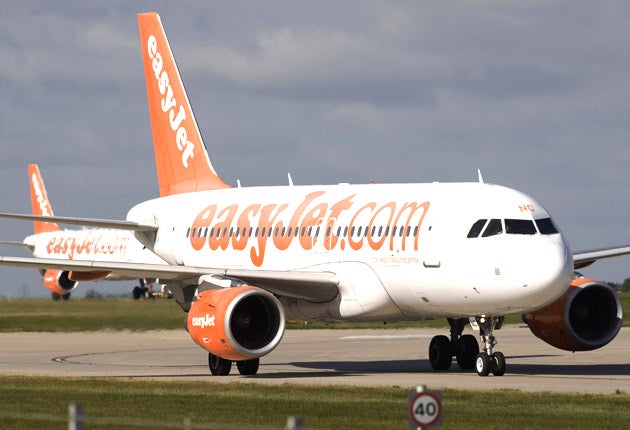EasyJet to pay dividend as passengers return

EasyJet unveiled plans to make its maiden payout to shareholders yesterday as the combination of higher passenger numbers and falling fuel prices drove a 331 per cent rise in the discount carrier's profits.
The business recorded £188.3m in underlying pre-tax profits in the 12 months to September, up from £43.7m in 2009. Revenues rose to £2.97bn from £2.67bn in 2009 while basic earnings were 68 per cent higher at 28.4p per share.
The airline profited from lower fuel costs, which fell to £13.09 per seat from £15.28 in 2009. At the same time passenger numbers rose by nearly 8 per cent to 48.8 million.
Building on the results, easyJet said it would pay its first-ever dividend in 2012. The payout will be in respect of the current financial year, which runs to the end of September 2011. Panmure Gordon said its estimates already forecast a 10p dividend for the current year.
Carolyn McCall, the former Guardian Media Group boss who replaced Andy Harrison as the airline's chief executive earlier this year, hailed the performance in what was a tough year for the airline industry as proof that the carrier's "business model is strong".
"The time is right to set in place a formula to trigger a dividend payment in years when the company is profitable whilst at the same time ensuring that it retains a conservative capital structure," she said. "We therefore intend to commence the payment of an annual dividend based on a dividend cover of five times."
The move was welcomed by easyJet founder and largest shareholder Sir Stelios Haji-Ioannou, who has been calling on the company to return cash to investors. He said the move was a "welcome change", though he added that he would eventually like to see the dividend ratio increased to 50 per cent of earnings per share.
The airline also announced plans to expand its fleet. It is aiming to add 24 planes, taking the total to 220, by September 2013, an annual growth rate of 7 per cent in seats flown.
"From 2013-2015 we have flexibility in our fleet plan in that our growth can be anywhere between 4 and 8 per cent," Ms McCall said. "We have built that flexibility into our strategy because no one knows what the economic outlook is going to be over [the] next five years."
Profits would have been even higher had it not been for disruption costs, which rose by £97.9m over the year. The Icelandic volcano cost £27.3m, while a cold snap and the attendant snow over December and January cost £20.8m. EasyJet also took a £49.8m hit owing to Air Traffic Control (ATC) strike action, and operational difficulties over the summer.
Looking ahead, easyJet said the European economic outlook "remains uncertain", with the continuing level of ATC strike action causing both disruption and "driving additional cost".
Panmure Gordon analyst Gert Zonneveld said the results showed that easyJet was "emerging strongly from the downturn". "Cost reductions and yield improvements (helped by a stronger revenue environment and a reduction in capacity growth in the coming years) should allow earnings per share to rise strongly," he said.
He added that the "excellent growth prospects" justified a "superior rating" for the airline's shares.
Join our commenting forum
Join thought-provoking conversations, follow other Independent readers and see their replies
Comments